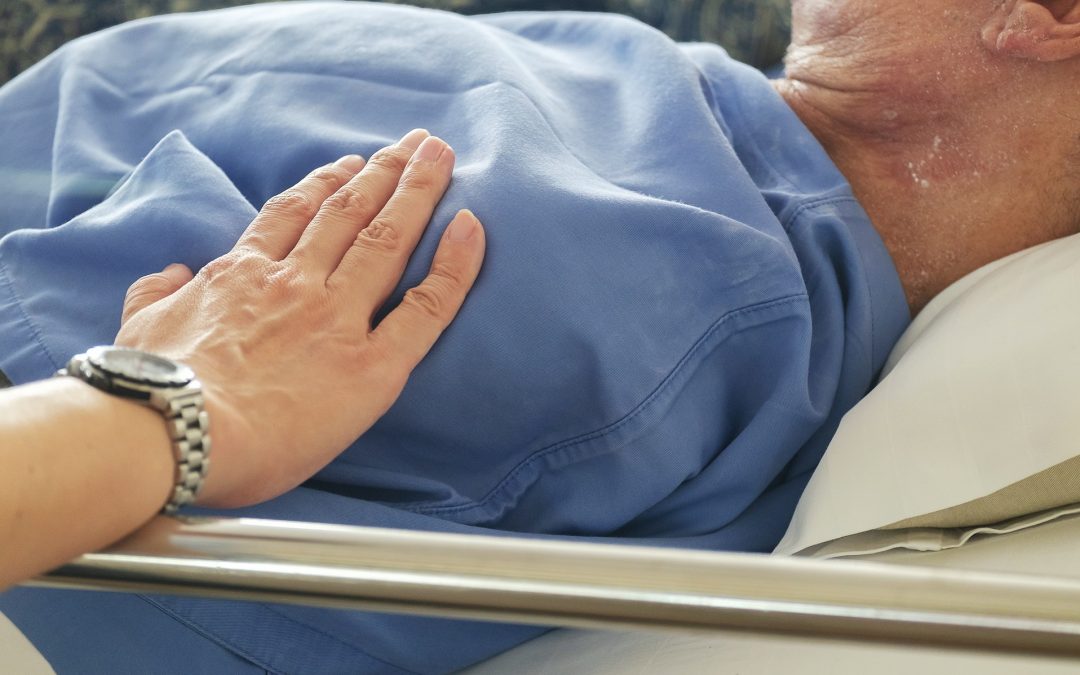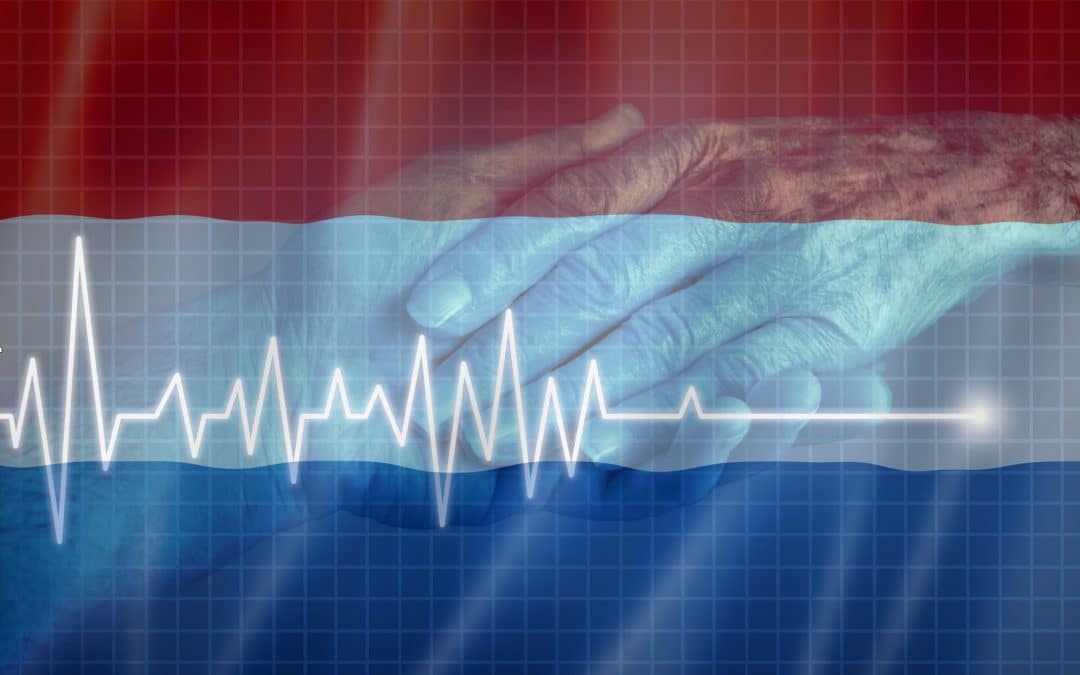
by Alliance VITA | May 29, 2020 | Coronavirus, News
The latest abortion controversy started right at the beginning of the confinement, when Senator Laurence Rossignol (Socialist Party) tried to extend the statutory deadline for performing abortions from 12 to 14 weeks of pregnancy.
On the night of May 28, two amendments were again rejected by the French Senate when discussing the draft law dealing with Covid-19 emergency measures.
The bill’s rapporteur, Senator Muriel Jourda, pointed out: “This text will be back in the Senate on June 10th, therefore the law would become effective one month after the end of the confinement period. If we assume that the state of emergency lasts until July 10th, this bill would concern babies who have not even been conceived yet!” Earlier during the discussion, Senator Jourda took note of Mrs. Rossignol’s single-minded persistence since she had filed the same amendment a year ago when the law was being reexamined. Suffice it to say that Covid-19 is being used as a pretext for promoting ideological demands.

by Alliance VITA | May 15, 2020 | Coronavirus, Euthanasia and Suicide, News
In France, the official decree issued on March 29, 2020, which authorized Rivotril® to be prescribed “off-label, in the context of the COVID-19 outbreak” was rescinded on May 12, (decree n° 2020-548, Art. 28, dated May 11, 2020).
The exceptional derogation for using Rivotril ® was intended to provide relief for COVID-19 patients with acute respiratory distress (asphyxia) and who were not to be resuscitated. Due to the shortage of sedative drugs during the outbreak, the decree authorized Rivotril ® to be prescribed off-label during the initial confinement period until April 15, and was later extended until May 11th.
Alliance VITA previously warned in its April 3, 2020 article, that although off-label dispensation of Rivotril® was sometimes a necessity for exceptional cases of COVID-19 patients who are not to be resuscitated, its use in private practice or in nursing homes and medico-social establishments should nevertheless be supervised and several previous conditions should be met:
- seek the patient’s recovery with curative attempts prior to any palliative measures;
- respect the patient’s will;
- dispense appropriate training for caregivers;
- ensure a minimum of traceable collegial decision-making;
- offer appropriate support to patients and their families;
- provide support and follow-up to the healthcare team.
Rivotril® should only be prescribed to relieve the patient’s suffering and never with the intention of shortening his life. Rescinding the temporary derogation for off-label prescriptions of Rivotril® is a reassuring sign and indicates that hospital services are currently able to manage COVID-19 patients.

by Alliance VITA | May 14, 2020 | Coronavirus, End of life, News
Could the COVID-19 pandemic change our vision of the care for the dying or for people at the end of their life?
The COVID-19 crisis has sparked a significant and genuine thinking on our relation with the dying, especially in the institutional and hospital settings.
As several clinicians and social studies specialists have pointed out, we have suddenly become more conscious of some “imperceptible” basic parameters that regulate our lives when we are healthy and safe (family, social ties, funeral rites,…). Ordinary routines, which were previously taken for granted, suddenly seem more valuable, when they must be relinquished due to the emergency health provisions.
The pandemic deprived families from being with loved ones at the end-of-life. Thus, doctors and caregivers were assigned this additional role to help the dying during their last lonely moments, despite the protective barrier of masks and equipment, which do not help for the communication between caring people and people who being cared for.
Over the centuries, death was historically a “family affair” where “dying well” meant dying at home with bereavement rites performed according to the family’s customs, religion, and/or tradition. Nowadays 80% of deaths occur in institutions (medico-social establishments and hospitals) where, most of the time, the care for the dying person is delegated to healthcare professionals. By medicalizing the act of dying, it has become more or less a “foreign affair” for the family members.
In a recent article, psychologist, Marie de Hennezel, describes three consequences of denying death:
On an individual level, it has negative impacts on one’s life:
- It maintains the erroneous belief that scientific and technological omnipotence will eventually triumph over death.
- It makes us less humane since it rejects the idea of vulnerability.
The collective fear of our human condition as vulnerable and mortal beings comes from the fact that death is concealed in contemporary society.
The pandemic headlines report death on a daily basis. Could this put an end to the idea that death is taboo? Damien Le Guay, President of the National Funeral Ethics Committee voices his disagreement. He laments that the dead are only anonymously tallied. “All the news reports revolve around anonymous COVID-19 death statistics, without mentioning their names, and without developing a way to demonstrate a national tribute to them and their families.”
He points out that our fixation with the virus has obliterated the “anthropological necessities” for dealing with death: the necessity to pay our respects to the deceased, to bond together to honor them through ceremonies that help mitigate the terrible grief.
Thus, the COVID-19 pandemic simultaneously focuses on our confidence in the technological resources (respirators, etc.) as well as on the indispensible role of human relationships in accompanying the dying and the bereaved. Both are necessary for training caregivers. Being listened to during the bereavement process can help circumvent depression, suicidal thoughts … and can eventually help the bereaved person find a renewed happiness in the simple things in life, such as admiring nature and appreciating human fellowship.
Due to this unprecedented situation, the listeners at Alliance VITA’s SOS End of Life Listening Service are participating in the listening platform “How to get through mourning” which is available 24/7 to help bereaved persons cope with the loss of a loved one.

by Alliance VITA | April 29, 2020 | Euthanasia and Suicide, News
On April 23, the Dutch Supreme Court rendered a decision on the value of advance directives written by people with dementia by ruling that written requests are open to interpretation. Consequently, doctors can now legally carry out euthanasia on people with dementia if the patient has put his wishes in writing beforehand, even when they can no longer confirm them at a later date, due to their illness.
Consequently, in the Netherlands, one’s advance directives may be ignored under certain circumstances. The court’s ruling states: “this may concern, for example, the behavior of the patient or verbal statements from which it may be inferred that the patient’s current condition does not correspond to the situation specified in the request. In addition, the law requires that written end-of-life requests be carried out, only in the event of hopelessly unbearable suffering. For a patient with dementia, one must be particularly careful about the prerequisite of unbearable suffering.”
“In fact, the margin allowed for interpretation stipulates that even when the patient is no longer able to express himself, the requests written beforehand may be acted upon. The possibility of complying with a previous written end-of-life request also exists when the inability to express one’s will is caused by advanced dementia. In this case also, all the requirements set by the law on euthanasia must be respected. […] It follows from these legal requirements that, in these cases, the request for euthanasia must be made in writing in a situation where the patient can no longer express his will due to advanced dementia.”
This decision follows a landmark euthanasia case, “Koffie-euthanasia”, in which Dr. Catherine A. who performed euthanasia on a woman suffering from dementia was accused of murder. The patient had written advance directives for euthanasia before she found herself in a state of advanced dementia. The woman wrote that she wanted to have euthanasia performed “upon my request” and “when I myself think the time is right.” One year later when euthanasia was finally performed, her condition no longer allowed her to grasp the understanding of euthanasia. Without explicitly asking the patient if she wanted to die, a sedative was put in her coffee before the doctor began the IV of lethal drug. The woman struggled, and had to be restrained during the delivery of the IV.
Both the doctor and the procedure were declared to be wrong and unreasonable by The Hague Disciplinary Health Care Office and the Euthanasia Regional Control Commission. Nevertheless, The Hague Tribunal decided to acquit the doctor.

by Alliance VITA | April 17, 2020 | Coronavirus, Abortion, News
A new French decree which became effective on April 14, 2020 extends deadlines for having drug-induced abortions at home from 5 to 7 weeks of pregnancy (corresponding to 7-9 weeks amenorrhea) during the Covid-19 health emergency.
Repeatedly questioned by Senator Laurence Rossignol (Oise, Socialist Party) about f6acilitating access to abortion during the confinement period, the French Health Minister, Olivier Véran declared, during the government session on April 1, 2020, that he was concerned about “an alarming drop in the number of abortions”. Nevertheless at that time, he declined to give a precipitous response to modify the legal time limits.
On April 7 the French Health Minister called upon the High Authority for Health (“HAS”) “to rapidly draft recommendations for carrying out drug-induced abortions outside health establishments at 8-9 weeks amenorrhea, to analyze pain treatment in this context which may modify the practices of prescribing anti-inflammatory drugs.” Two days later, on April 9, the recommendations destined for the new decree were issued by the “HAS”
Since 2004, drug-induced abortions could legally be carried out at home for up to 5 weeks of pregnancy under certain conditions, and for up to 7 weeks in a hospital. Thereafter and up to the legal deadline of 12 weeks of pregnancy (14 weeks amenorrhea), only surgical procedures can be performed.
The “HAS” justifies its’ new recommendations (referred to “rapid responses”) by stating that “it is imperative to ensure that women continue to have access to their abortion rights during the current epidemic, with conditions that do not lead to extend the legal deadlines, limit the exposure of patients and professionals to COVID-19, and do not jeopardize the resources of health establishments”.
The document points out that these “quick responses” are only applicable because of the emergency caused by the present epidemic crisis. As far as at-home abortions prolonged to 8 weeks of amenorrhea, the “HAS” recommends women to take twice the usual dose of misoprostol, a drug which, until now, has not received marketing authorization for this purpose (off-label prescribing). The woman must be within an hour’s distance of a referent health center in case of complications, especially hemorrhage, (up to 5% risk, according to the HAS 2018 product notice about adverse side-effects). In the event of severe pain, it is recommended to not remain at home alone.
The decree specifies that the compulsory medical consultations can be carried out by video, but there is no mention of how the woman’s written consent for abortion is to be obtained, nor any mention of ensuring listening and support, which is guaranteed by the law. In addition, the drugs prescribed for aborting (mifepristone and misoprostol, taken at intervals of 24 or 48 hours), are to be dispensed by the pharmacy, directly to the woman, whereas previously, these drugs were only dispensed by a doctor or a midwife.
Caroline Roux, Alliance VITA’s Assistant General Delegate declares:
“This grave decree may have significant health and psychological consequences for women. Advocating this type of drug-induced abortion implies that the decision is made in a hurry, and it may also convey a foregone conclusion that it is the best solution. Meanwhile women are left alone, to suffer in solitude during this epidemic. In addition, it is well-known that late term abortions are more risky and need to be monitored more carefully, due to more severe pain at later gestational ages, and due to an increased risk for heavier bleeding and hemorrhaging.
Was it really “essential” to promote “confined abortion” and mobilize our caregivers for this type of emergency procedure? Is this how we show our respect for women? “
The real health emergency is that pregnant women may receive the support and safety they need, and have the necessary assistance if problems arise. It is also essential to shield women from all types of violence, including a violence often initiated by men: the pressure to abort against their will.





